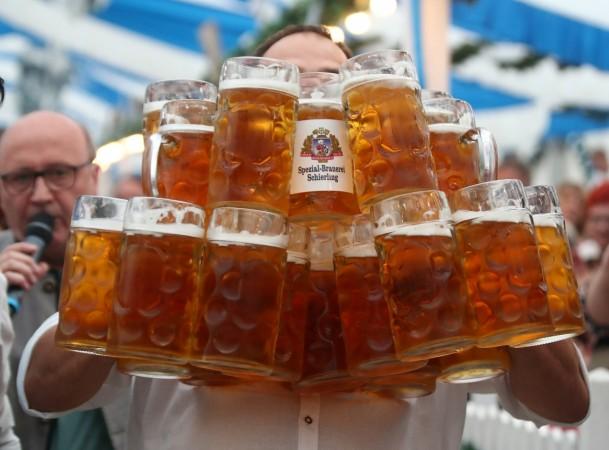
Genetically- modified brewer's yeast infused with the ability to reproduce the same oils that hops naturally have could make it possible to brew beer like India Pale Ale (IPA) without the plant ingredient.
Using this oil-producing yeast, scientists were reportedly able to brew a lab-made beer that tasted more like IPA than actual IPA. They came to this conclusion after conducting a double-blind taste test of two batches of regular pale and hop-free beer, reported Quartz.
This research was carried out by a team of scientists at the University of California-Berkeley. It was done by first separating bitter oils from the flowers of the Humulus Lupulus (hops) plant. The researchers then searched for other plants that made these same oils and isolated the genes that were responsible for producing them.
Once the genes were isolated, the DNA of brewer's yeast was modified to make the fungi produce the same oils. After a lot of testing and trials, the team decided that the genes from mint and basil spliced into with yeast worked the best.
Flowers from the hop plant give beers a signature "hoppy" bitterness and add flavor to the drink. While hops are an important part of the beer-brewing process, they are incredibly water, energy, and cash-intensive.
Hops also vary in the way they make a particular essential oil that goes into beer, making it difficult to maintain a consistent flavor, according to a study published in the journal Nature Communications.
This new process of making beer could potentially streamline the commercial production of ales, keeping up with growing demand and rising costs.
IPAs have been in production since the 1700s, noted Quartz. First made by brewer George Hodgson in England, the beer needed hops to be added to it to survive its journey to India, which at that time took six months by sea.
When hops were added to the wort — a sugary warm mixture of fluids that made the base for beer — Hodgson realized that during transportation, the beer aged instead of getting spoiled.
It added a signature bitterness to the beer, which then gave IPA its identity. Today, beer-making procedures do not need hops for preservation but only for flavor, noted the report.
The demand is also growing. IPA made up a quarter of the craft beer sales in the US in 2017 alone.
This modified yeast will make it will possible to put out batches of consistently-flavored beer and streamline production.














